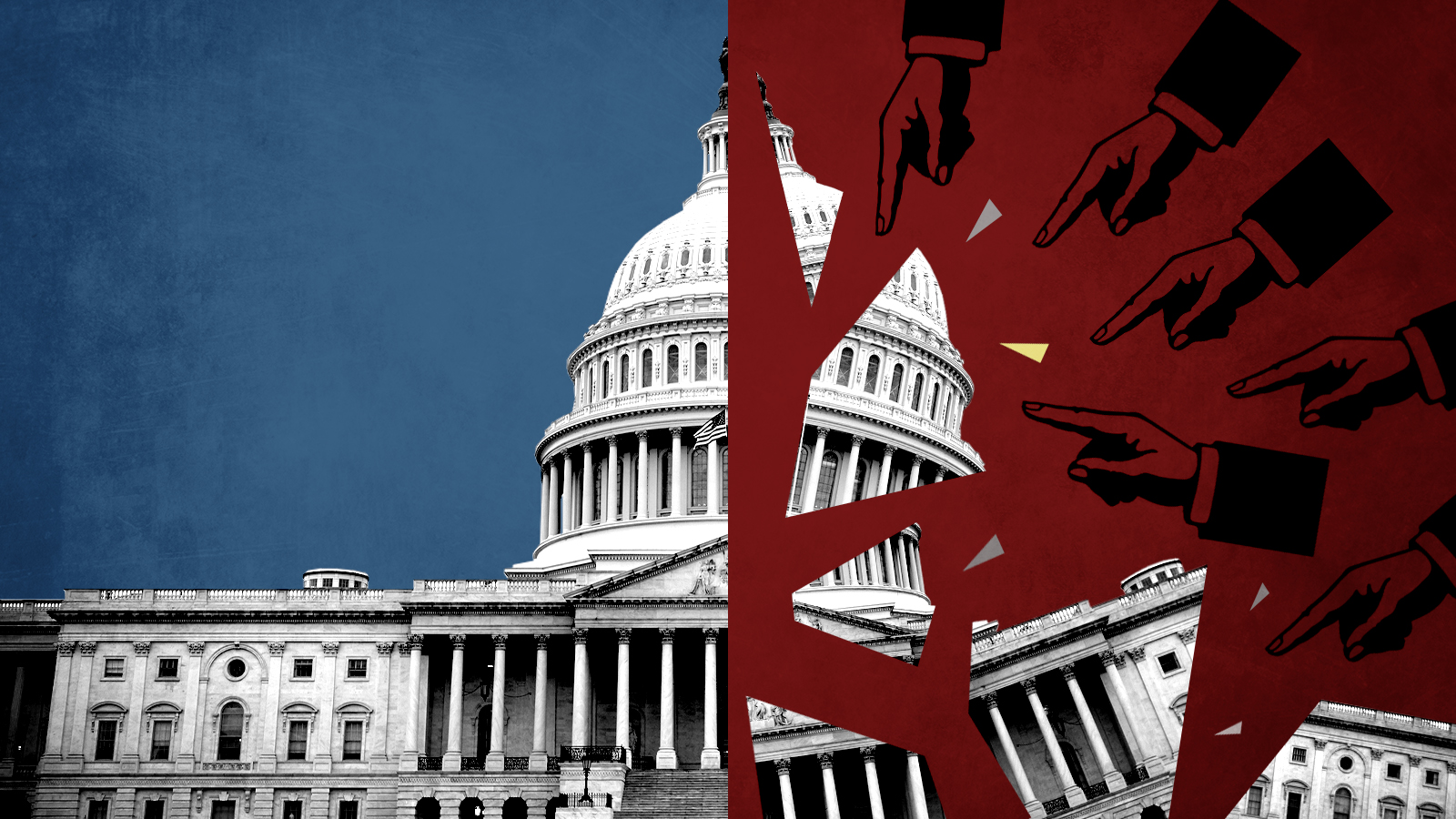The Secret Congress paradox


A free daily email with the biggest news stories of the day – and the best features from TheWeek.com
You are now subscribed
Your newsletter sign-up was successful
If there's one thing every progressive pundit and activist knows with absolute certainty, it's that Congress is broken and the blame lies with Republicans and oblivious Democratic centrists (like Sens. Joe Manchin and Kyrsten Sinema) who are indifferent to the urgency of passing the Biden agenda. But what if this account of the state of play in Congress is wrong and American democracy is functioning much the way it always has?
That's the provocative question posed by a thoughtful post on Slow Boring, Matthew Yglesias' consistently excellent Substack. In "The Rise and Importance of Secret Congress," Yglesias and his coauthor Simon Bazelon point out that, while high-profile bills dealing with voting rights, infrastructure, and gun control remain stalled by uniform Republican opposition, other significant bills have passed on a comfortably bipartisan basis. One was the Drinking Water and Wastewater Infrastructure Act of 2021, which passed in May, showing that not all infrastructure is a no-go in the 117th Congress. Another was the COVID-19 Hate Crimes Act, which Biden also signed in May, and the United States Innovation and Competition Act of 2021, which recently passed the Senate with 68 votes and looks likely to clear the House later this year.
As Yglesias and Bazelon note, Congress also passed important legislation in the supposedly gridlocked closing years of the Obama and Trump administrations. The secret of this legislative success? The very fact that the legislation was secret. Well, not literally secret. But definitely not pushed by the White House, and not aligning precisely with the ideological priorities of each party's activist cheerleaders in the media and on the sidelines. The trick, it seems, is for members of Congress to find unpredictable cross-party partners to work with on issues that cut across these divides and then for the president to stay out of it, since his involvement will usually guarantee staunch opposition by members of the other party.
The Week
Escape your echo chamber. Get the facts behind the news, plus analysis from multiple perspectives.

Sign up for The Week's Free Newsletters
From our morning news briefing to a weekly Good News Newsletter, get the best of The Week delivered directly to your inbox.
From our morning news briefing to a weekly Good News Newsletter, get the best of The Week delivered directly to your inbox.
If this is right, the last thing pundits, activists, and presidents should be doing is loudly demanding that Congress pass this or that bill, since doing so will often ensure that the other party will refuse to go along. The road to success, meanwhile, might involve quiet coalition-building and deal-making behind the scenes. Which, come to think of it, may be the way Congress has always tended to work — even if that clashes with what our most highly engaged partisans would prefer.
A free daily email with the biggest news stories of the day – and the best features from TheWeek.com
Damon Linker is a senior correspondent at TheWeek.com. He is also a former contributing editor at The New Republic and the author of The Theocons and The Religious Test.
-
 ‘Restaurateurs have become millionaires’
‘Restaurateurs have become millionaires’Instant Opinion Opinion, comment and editorials of the day
-
 Earth is rapidly approaching a ‘hothouse’ trajectory of warming
Earth is rapidly approaching a ‘hothouse’ trajectory of warmingThe explainer It may become impossible to fix
-
 Health insurance: Premiums soar as ACA subsidies end
Health insurance: Premiums soar as ACA subsidies endFeature 1.4 million people have dropped coverage
-
 Grand jury rejects charging 6 Democrats for ‘orders’ video
Grand jury rejects charging 6 Democrats for ‘orders’ videoSpeed Read The jury refused to indict Democratic lawmakers for a video in which they urged military members to resist illegal orders
-
 Democrats push for ICE accountability
Democrats push for ICE accountabilityFeature U.S. citizens shot and violently detained by immigration agents testify at Capitol Hill hearing
-
 Big-time money squabbles: the conflict over California’s proposed billionaire tax
Big-time money squabbles: the conflict over California’s proposed billionaire taxTalking Points Californians worth more than $1.1 billion would pay a one-time 5% tax
-
 Will Peter Mandelson and Andrew testify to US Congress?
Will Peter Mandelson and Andrew testify to US Congress?Today's Big Question Could political pressure overcome legal obstacles and force either man to give evidence over their relationship with Jeffrey Epstein?
-
 Did Alex Pretti’s killing open a GOP rift on guns?
Did Alex Pretti’s killing open a GOP rift on guns?Talking Points Second Amendment groups push back on the White House narrative
-
 Rep. Ilhan Omar attacked with unknown liquid
Rep. Ilhan Omar attacked with unknown liquidSpeed Read This ‘small agitator isn’t going to intimidate me from doing my work’
-
 Washington grapples with ICE’s growing footprint — and future
Washington grapples with ICE’s growing footprint — and futureTALKING POINTS The deadly provocations of federal officers in Minnesota have put ICE back in the national spotlight
-
 Can anyone stop Donald Trump?
Can anyone stop Donald Trump?Today's Big Question US president ‘no longer cares what anybody thinks’ so how to counter his global strongman stance?
